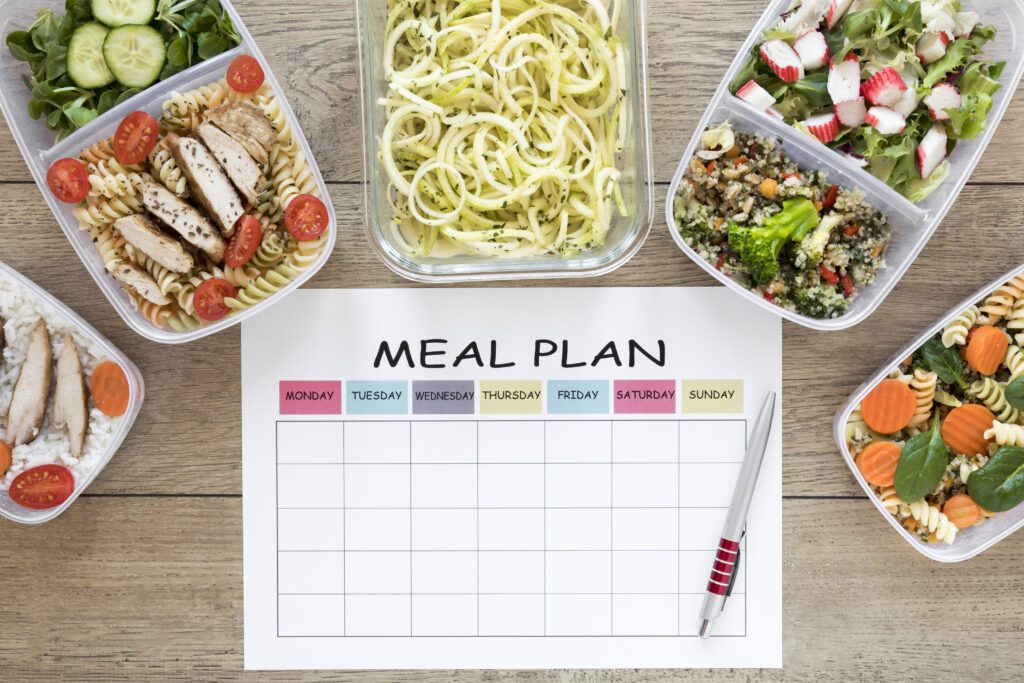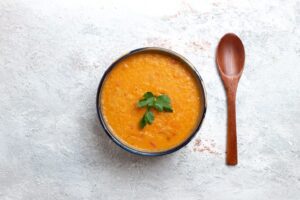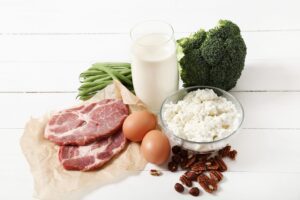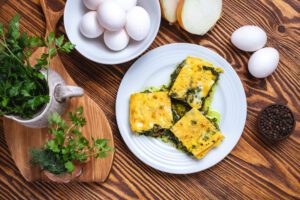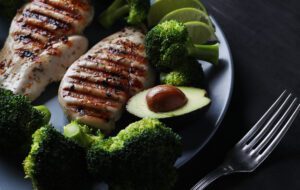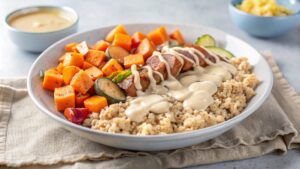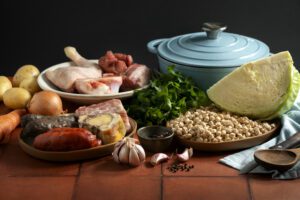Recovery after cancer surgery is very demanding, and a good diet during this phase can help your body heal. Post-surgery nutrition supports not only healing but also your energy levels and immunity. If you understand what your body needs at this time, you can recover faster and better. Effective meal planning post-surgery plays a critical role in ensuring you meet these nutritional needs.
Table of Contents
How the Body Responds After Surgery
There are many changes in the body after surgery. Before surgery, the body has multiple changes. The need for food and energy rises during this difficult time. Your body boosts immunity, replaces lost fluids, and heals damaged tissues.
Key Points:
- Wound healing occurs after surgery, which depends on protein and vitamins.
- There can be inflammation in the body, which can be reduced with proper nutrition.
- Immunity temporarily weakens, so it is important to take immune-boosting foods.
Essential Nutrients That Improve Recovery

After cancer surgery, the body needs specific nutrients that help in healing and strength gain.
1. Protein
Proteins are the building blocks of the body. They repair tissues and prevent muscle loss. Your protein requirement increases after surgery.
What to eat: Eggs, chicken, fish, lentils (dal), tofu, paneer.
How much is required: Take 1.2-2 grams of protein per kg of your body weight every day.
2. Vitamin C
This vitamin helps in healing body tissues and wounds. Antioxidant protects the body from infections.
Sources: Oranges, Indian gooseberry, guava, capsicum.
Proven Benefit: Research says that vitamin C improves wound healing speed.
3. Healthy Fats
Fats, especially omega-3 fatty acids, control inflammation and provide energy.
What to eat: Fish (salmon, mackerel), walnuts, flaxseeds.
Practical Tip: Use olive oil for cooking.
4. Zinc
This is an essential mineral that is useful for healing and immunity.
What to eat: Pumpkin seeds, cashews, beans, shellfish.
5. Fiber
Constipation is a common problem after surgery. Fiber-rich foods improve digestion.
What to eat: Fruits, vegetables, whole grains (brown rice, oats).
Which foods to eat and which to avoid
What you eat will directly impact your recovery. So, choose your food wisely.
Foods to eat:
- Lean Proteins: Chicken, turkey, eggs, fish.
- Whole Grains: Brown rice, oats, quinoa.
- Colorful Vegetables: Broccoli, spinach, carrots, beetroot.
- Healthy Fats: Avocado, olive oil, nuts.
- Probiotics: Yogurt, kefir (helpful for digestion).
Foods to avoid:
- Sugary Foods: These increase inflammation and weaken immunity.
- Fried Foods: These create problems in digestion and it is better to avoid them.
- Processed Foods: These provide only calories with low nutritional value.
- Alcohol and Caffeine: These cause dehydration and slow down the healing process.
Suggestion: There should be variety and balance in every meal. Prefer fresh and minimally processed foods.
Sample Meal Plan for Recovery

Creating a balanced and realistic meal plan can improve both your energy and recovery.
Morning (Breakfast):
- Bowl of oats and fresh fruits (apple, banana).
- boiled eggs and a cup of green tea.
Mid-morning snack:
- Handful of nuts (almonds, walnuts).
- A glass of fresh juice (orange or carrot).
Lunch:
- Grilled chicken or fish with brown rice and steamed broccoli.
- 1 bowl of clear soup (vegetable or chicken broth).
Afternoon snack:
- Yogurt with chia seeds or a medium-sized fruit.
- A handful of roasted chickpeas.
Dinner:
- Lentil soup with whole grain roti.
- Sautéed vegetables like spinach, beans and carrots.
Bedtime snack:
- Warm milk with a little turmeric and a small fruit.
Practical Tips for Meal Planning
1. Take care of hydration
Water is very important. Drink 8-10 glasses of water every day. Include hydrating foods like coconut water and soups.
2. Eat small meals
It is better to eat 5-6 small meals a day instead of one big meal. It makes digestion easy and keeps the energy constant. This approach simplifies meal planning post-surgery and ensures steady nutrition throughout the day.
3. Prepare ready meals
If possible, prepare meals for a week in advance. It will reduce your stress and your recovery will be better.
4. Keep portion control
Avoid too heavy meals. Your body needs gradual nutrition now.
5. Take advice from the doctor or dietitian
If you have any doubts, discuss your diet plan with your doctor or dietitian.
Conclusion
Recovery after cancer surgery is a slow and thoughtful process. What you eat directly impacts your healing. It is important to take a simple and balanced approach for “Post-Surgery Meal Planning: What to Eat for Optimal Recovery”. Fresh, home-cooked, and nutrient-rich meals help in recovery.
If you are proactive about your health, recovery will be smooth and stress-free. Plan your meals well and achieve your health goals with small, consistent steps.
FAQs
For how many days should I follow a special diet after post-surgery?
A structured diet is necessary for at least 6-8 weeks after surgery. This duration can vary according to your doctor’s advice.
Is it necessary to take supplements?
If the diet is balanced then there is no need for supplements. But if there is any deficiency or the doctor recommends then definitely take them.
Is it safe to follow a vegan diet?
Yes, a vegan diet is safe as long as you meet your protein and essential nutrient requirements from plants.

